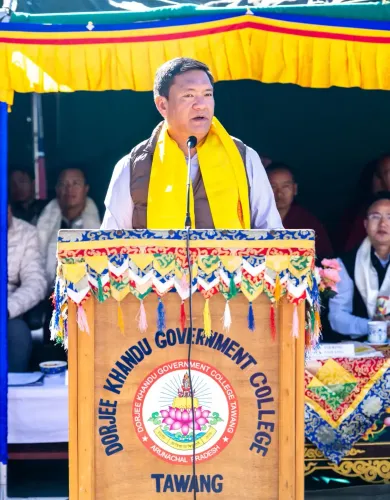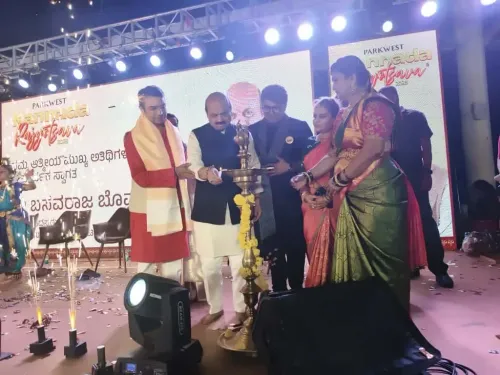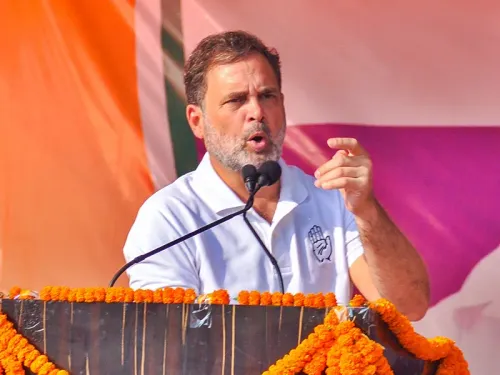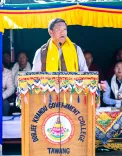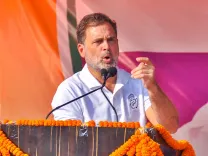Shashi Tharoor: UN Faces Challenges of Inequality
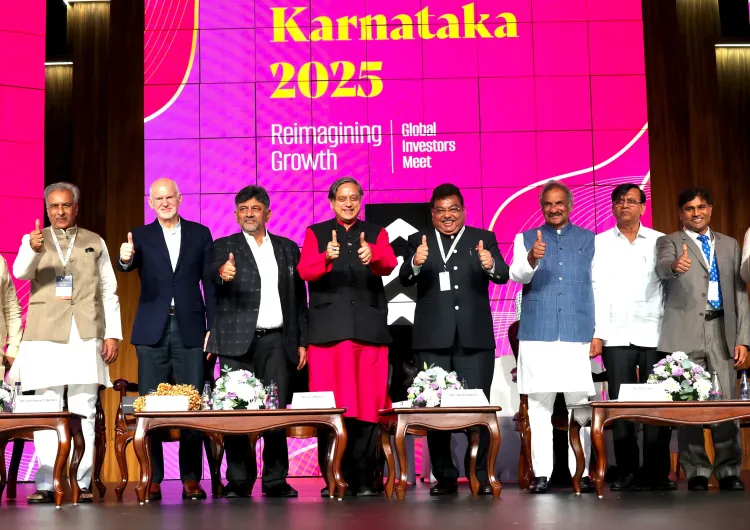
Synopsis
Key Takeaways
- UN grapples with global inequality.
- COVID-19 reshaped supply chains.
- India's poverty persists despite efforts.
- Call for education reform to combat high unemployment.
- Importance of critical thinking in learning.
Bengaluru, Feb 14 (NationPress) Shashi Tharoor, a noted author and Member of Parliament, stated on Friday that even the United Nations has been struggling with inequality and disparity.
During his speech at the "Global Investors' Meet (GIM-25)," Tharoor emphasized that recognizing such harsh realities is essential for considering alternative global systems.
In his remarks, Tharoor highlighted how the COVID-19 pandemic has revealed significant changes in global supply chains, noting that post-pandemic, world leaders are prioritizing strengthening their own borders rather than addressing global issues.
He also pointed out the persistent poverty in India, where despite government initiatives like providing free food for 80 crore individuals, a significant portion still lacks adequate purchasing power.
Tharoor advocated for a fundamental reform of India’s education system to equip the youth for future job markets, especially as AI and automation are projected to render 30 percent of global jobs obsolete within the next five years. "India has the highest unemployment rate globally, and to empower the youth, our education system needs a complete overhaul," he stated.
He further highlighted the necessity of fostering critical thinking in education, urging institutions to focus on teaching students "how to think" rather than "what to think."
Former Greek Prime Minister George A Papandreou, who also spoke at the event, resonated with Tharoor's views on democracy, stressing the importance of transparency and accountability in governance — traits that were notably missing during Greece's economic turmoil. "In Greece, public funds were not directed toward the welfare of the populace. Politicians concentrated solely on maintaining power, leading to the economic crisis," he expressed.
The session was overseen by Lakshmi Praturi, founder and CEO of Ink Talk.
In another development, Minister for Energy, K.J. George, introduced Karnataka’s ambitious Clean Mobility Policy for the 2025-30 period, aiming to establish the state as a national leader in Electric Vehicle (EV) and hydrogen vehicle manufacturing.
Presenting the policy at the GIM Invest Karnataka 25, he noted that the initiative outlines substantial investments and plans to transform Karnataka into a clean mobility hub.
Large and Medium Industries Minister M.B. Patil revealed that the policy is expected to attract investments totaling Rs 50,000 crore over the next five years, generating approximately 1 lakh jobs. The state has already garnered Rs 25,000 crore in investments across the entire EV value chain, including battery pack production, cell manufacturing, original equipment manufacturers (OEMs), charging infrastructure, and R&D. An additional Rs 15,000 crore is anticipated to be invested by August 31.
With around 2.5 lakh EVs already registered, Karnataka ranks third in the nation regarding the number of electric vehicles. This policy aims to build upon this accomplishment by further encouraging the adoption of EVs and hydrogen-powered vehicles.
“The essence of the new policy focuses on cultivating robust infrastructure for clean mobility, emphasizing charging stations, hydrogen hubs, and retrofitting existing vehicles to electric or hydrogen-powered alternatives,” the minister remarked.

